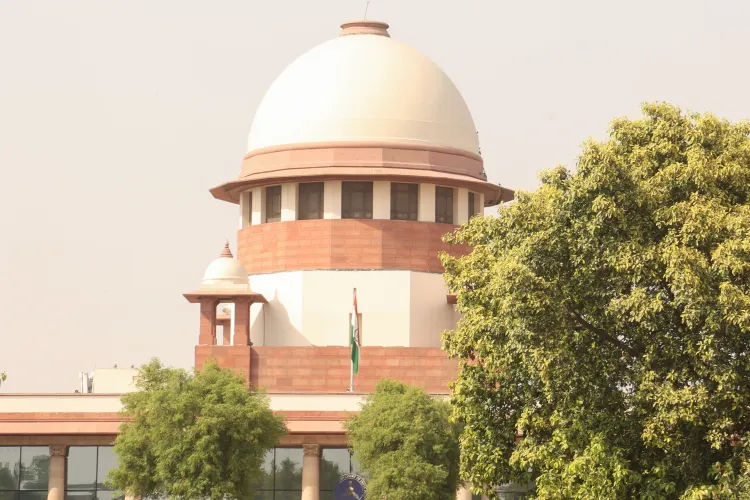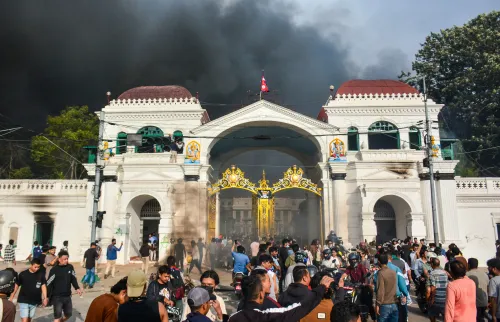Is the Waqf (Amendment) Act, 2025 Designed to Capture Properties?

Synopsis
Key Takeaways
- The Waqf (Amendment) Act, 2025 is contested for potentially infringing on property rights.
- Petitioners argue the amendments enable executive capture of waqf properties.
- The Act introduces a five-year practice requirement for creating a waqf, deemed unconstitutional by critics.
- The Supreme Court is deliberating on an interim stay regarding the Act's implementation.
- Supporters argue the amendments are necessary for better management of waqf properties.
New Delhi, May 20 (NationPress) The petitioners disputing the legitimacy of the Waqf (Amendment) Act, 2025, presented their case before the Supreme Court on Tuesday, asserting that the controversial changes made to the waqf law aim to “capture” properties through an executive and non-judicial mechanism.
Senior advocate Kapil Sibal argued, “The 2025 Waqf (Amendment) Act is purportedly created for the protection of waqfs, but in essence, it seeks to capture waqf through a process that is non-judicial and executive,” while addressing a bench led by CJI B.R. Gavai and Justice A.G. Masih.
Describing the essence of waqf properties, Sibal stated that they are an endowment to Allah (the god) by private individuals and cannot be transferred further, adhering to the principle of “once a waqf, always a waqf.” However, he noted that under the Waqf (Amendment) Act, 2025, if an encroacher raises a dispute, the waqf property will lose its inherent nature until the dispute resolution.
“This 2025 amendment represents a complete shift from previous waqf legislations. Notably, for the first time, under this amendment, a property will not be recognized as a waqf if it is not registered,” Sibal argued, emphasizing that previous laws required registration but did not impose any severe consequences for non-registration beyond the removal of the mutawalli.
Sibal pointed out that past legislation, including the Ancient Monuments Preservation Act of 1904 and the Ancient Monuments and Archaeological Sites and Remains Act of 1958, aimed to enhance the protection of waqf properties without altering their waqf status. He illustrated this by discussing the Jama Masjid or other places of worship, where despite government declarations to preserve them as “ancient monuments,” their character remains intact, and ownership does not transfer to the government.
He reiterated that prior to the recent changes, the right to religious worship was safeguarded even under the Ancient Monuments Preservation Act.
Sibal argued that the Waqf (Amendment) Act, 2025 is intended for a “complete takeover” of waqf properties, including their ownership.
He further questioned the constitutionality of a newly introduced provision that mandates five years of Muslim practice before establishing a waqf, stating, “This requirement is inherently unconstitutional. Creating a waqf is a right guaranteed under Article 25 of the Constitution.”
He also highlighted that the Central Waqf Council could have a majority of non-Muslims if the Union government chooses under the Waqf (Amendment) Act, 2025.
“The balance of convenience favors us, and irreparable harm will occur if these provisions are enforced. If I cannot create a waqf without satisfying the five-year Muslim requirement, it leads to immediate and irreparable injury,” Sibal asserted.
The CJI Gavai-led Bench is currently deliberating on whether to issue an interim stay on the implementation of the Waqf (Amendment) Act, 2025.
In prior hearings, the apex court indicated a potential stay order, to which the Union government assured that it would refrain from de-notifying provisions related to 'Waqf by user' or including non-Muslim members in the Waqf Board.
The court provided a week for the Centre, state governments, and Waqf Boards to submit their preliminary responses.
The Supreme Court has chosen to regard five writ petitions as lead cases and ordered the registry to rename the proceedings as “In Re: The Waqf (Amendment) Act, 2025.”
The petitioners argue that the amendments to the Waqf Act are discriminatory and violate the fundamental rights of the Muslim community. In contrast, six BJP-led states have supported the Union government, affirming the amendments as constitutionally valid and necessary.
The Waqf (Amendment) Bill, 2025 received presidential assent from President Droupadi Murmu on April 5 after being passed in both Houses of Parliament following extensive debate. The Centre has urged the Supreme Court to dismiss the petitions, claiming that the contested law does not violate constitutional guarantees.









